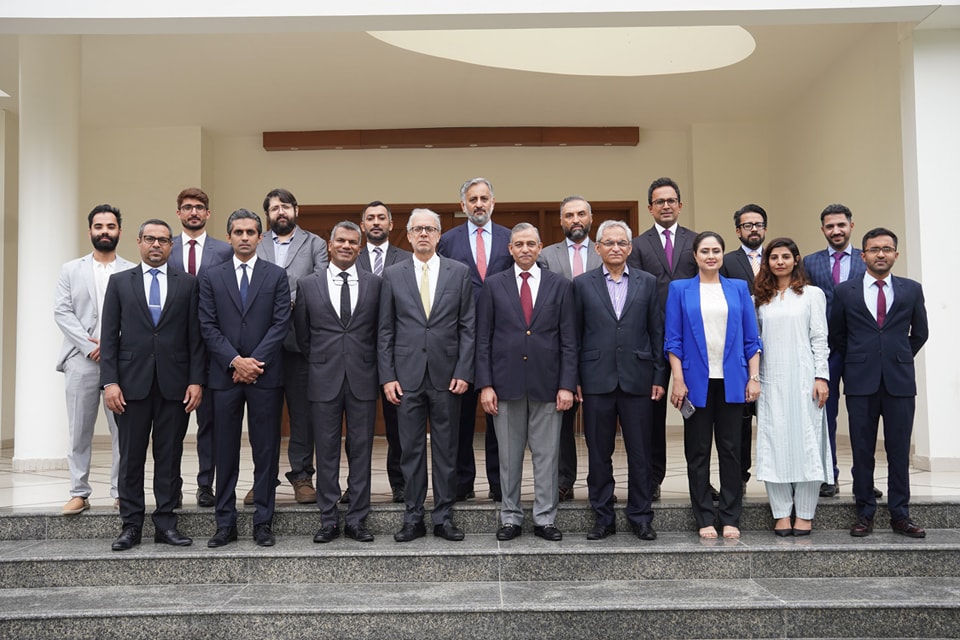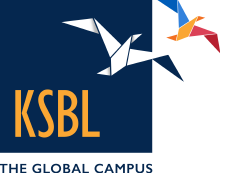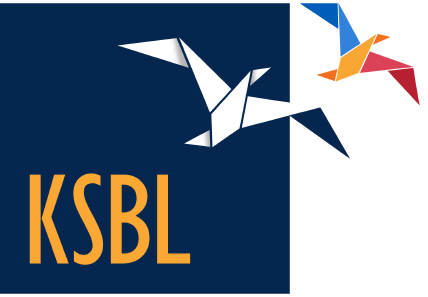
KSBL-IPRI Roundtable on ‘Building a Resilient Economy: Analysing Budget 2023-2024’
Karachi School of Business and Leadership (KSBL) in collaboration with Islamabad Policy Research Institute (IPRI) organized a roundtable on ‘Building a Resilient Economy: Analyzing Budget 2023-2024’ at KSBL on Thursday. The speakers for the Roundtable included Dr. Ahmad Junaid, Rector & Dean, KSBL; Amb. Dr. Raza Muhammad, President IPRI; Ejaz Muhammad, CEO, Arif Habib Dolmen REIT Management Limited; Ghias Khan, President & CEO, Engro Corporation; Syed Mohammad Shabbar Zaidi, Former Chairman, Federal Board of Revenue; Asad Ali Shah, CEO, Asad Ali Shah Associates; Ruhail Mohammad, CEO, Lucky Electric Power Company Limited; Khawaja Bilal Hussain, SVP Strategy, Business Development and Sustainability, Engro Corporation; Imran Baxamoosa, CEO, Blue-Ex; Sahibzadi Mahin Khan, Founder & President, Women Chamber of Commerce and Industry; Sayem Ali, Chief Economist, The Bank of Punjab; Dr. Safia Minhaj, Professor, University of Karachi; Mr. Huzefa Mazahir Ali, Partner EY.
The roundtable was moderated by Dr. Aneel Salman, KSBL-IPRI Chair Economic Security and Aijaz Haq, Head of Growth and External Linkages, KSBL. The theme of the discussion revolved around economic health of the country as speakers closely scrutinized the budget for the fiscal year 2023-24.
The experts were forthcoming in presenting their valued input and called upon for drastic measures to stem the current issues and fix the economy on sustainable lines. The focus of interaction was on themes such as impact of budgetary provisions for corporate sector, financial viability of the state, roadmap for economic recovery, taxation for growth and challenges faced by women entrepreneurs in Pakistan.
They were of the view that the current rate of growth is almost zero, which is a worrisome factor along with a spiraling inflation. Likewise, the debt is becoming unsustainable and almost 75% of the taxes are consumed by debt-servicing. They observed that the investment to GDP ratio is also inadequate i.e. at the rate of 13%, and is leading the economy towards stagnation, as there is no provision of climate finance in the budget.
The roundtable was candid in highlighting some of the merits of the annual budget 2023-2024 and pointed that the government has come up with efforts to promote growth of the IT sector and IT-enabled services, which is a good omen as it is an export driven measure. They noted that the budget exempts taxes on imports of IT equipment by exporters, and aims to facilitate the expansion of the IT industry by fostering technological advancements.
The panel stated that duty exemptions on solar equipment is an attempt to encourage the adoption of renewable energy sources, and sustainable practices in the energy sector. Likewise, the roundtable spelt out the demerits of the budget outlay and said that it has missed the opportunity to implement essential reforms by imposing taxes on sectors that have not been adequately taxed, such as wholesale, retail, and real estate.
The budget imposes a 10% final tax on the issuance of bonus shares, potentially discouraging companies from offering such shares. This measure may reduce market trade volume and negatively affect the Pakistan Stock Exchange.
They further mentioned that the budget is insufficient in addressing crucial matters such as expanding the tax base, investing in education and human development, managing the growing fiscal deficit, and establishing a favourable business environment. These areas are essential for Pakistan’s economic growth and must be adequately addressed.
It was pointed out that the set targets for tax collection (PKR 9.2 trillion) and revenue growth by 39% are not realistic, and appear to be impractical. Similarly, the resolve to increase salaries and pensions will additionally exert strain on the fiscal deficit. The reason is that the budget has enhanced the tax burden on the already compliant formal sectors and salaried class, which will discourage productive human capital, and limit capital formation and growth-oriented initiatives in the manufacturing sector.
The roundtable promptly identified the pestering problems in economy and budget, and elucidated by saying that the problem of Pakistan is an excessively large government. It said that the total expenditures are currently 14.4 trillion, 50% higher than the original FY 23, which makes it a difficult provision to manage the balance between expenditure and income.
They noted that corporate tax of 29% is hindering businesses in expanding their operations, and imposition of Super tax is no less than an enigma.
The moot made the following recommendations: cut down on the prevailing high energy tariffs and to find export resources that are less energy intensive. Developing human resource base and enhancing public-private partnerships; introducing tax reforms, and finally creating a conducive environment for attracting investment.


